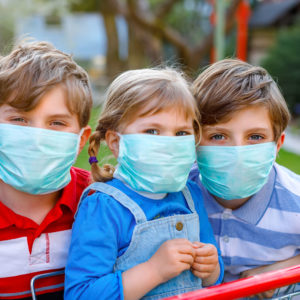New Hampshire child care providers are urging Gov. Chris Sununu to reconsider regulations that many in the industry call unrealistic, even during the coronavirus pandemic.
Since the Sununu administration released its original regulations allowing child care facilities to reopen, providers have been arguing that some of the restrictions are unworkable: limits on group sizes to 10 or less, having staff members wear masks or a washable cloth covering their nose and mouth “at all times while at work” — even while in break rooms with no other individuals present — and maintaining social distancing during meals.
Chris Emond, a member of the Governor’s Re-Opening Task Force and CEO of the Boys & Girls Clubs of Central New Hampshire, told NHJournal that since child care professionals are rule followers by nature, they had some serious concerns about some of the language that was in the original guidance meant to stop the spread of COVID-19 when child care centers reopened.
“The child care people being rule followers are like, ‘All right, I’m trying to figure out how to keep eight toddlers away from each other during meals. It’s just not possible,’” Emond said.
Emond said one of the solutions proposed is relaxing the language on certain guidance, such as wearing face coverings at all times. “When you say, ‘Whenever possible, and it’s highly recommended,’ basically, they’re going to have it on 99 percent of the time,’” Emond said of face coverings for staff members.
Beth Smarse, director of the Early Enrichment Center in Concord, told the Concord Monitor, “It’s just not feasible for us if we have to continue through the entire summer like this.”
At Friday’s COVID-19 news conference, Sununu acknowledged hearing “a lot of direct input over the past couple of days” from child care providers, owners and parents, and the state issued slightly modified guidance. But the underlying problems remain: operating facilities with too few children to cover costs, and being forced to turn away children already attending some facilities to stay under the attendance caps.
A solution proposed to help child care centers take in more kids as their parents return to work is allowing rooms to be partitioned off. An example of a room that could potentially hold multiple groups of 10 people is a gymnasium.
“It’s kind of ludicrous to say you can only have 10 people in there at a time. So, there’s going to be some flexibility in being able to divide up a large room, provided you are following fire safety codes,” Emond said.
Emond said even in facilities that do not have gyms, owners can find ways to keep groups of 10 people separated, particularly if the children are so small they are not mobile yet.
Also on Friday, state officials announced that a child of “pediatric age” from Hillsborough County was New Hampshire’s first case of Multisystem Inflammatory Syndrome in Children, which is believed to be associated with COVID-19, because many of the kids diagnosed with MIS-C have had the virus.
That child was hospitalized, according to officials.
There have been about 200 children under the age of 20 with confirmed COVID-19 infection in New Hampshire. There have not been any deaths reported, but at least six people between the ages of 0 and 19 have been hospitalized, according to the May 18 weekly summary report by the N.H. Department of Health and Human Services.
Officials are asking clinicians to report confirmed or suspected cases of MIS-C to the state.
For families that cannot be accommodated by their traditional child care provider under the new regulations, Child Care Aware of N.H. is a statewide resource and referral program. They have an online map of early childhood and school-age programs within the state.
They have also assembled a list of people willing to provide child care, including people who will babysit or nanny, and are posting that contact information on their website, nh.childcareaware.org.



